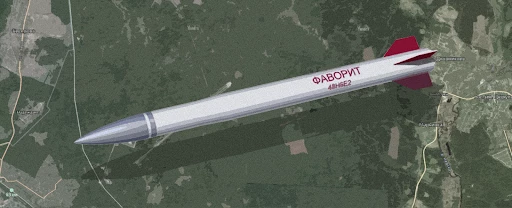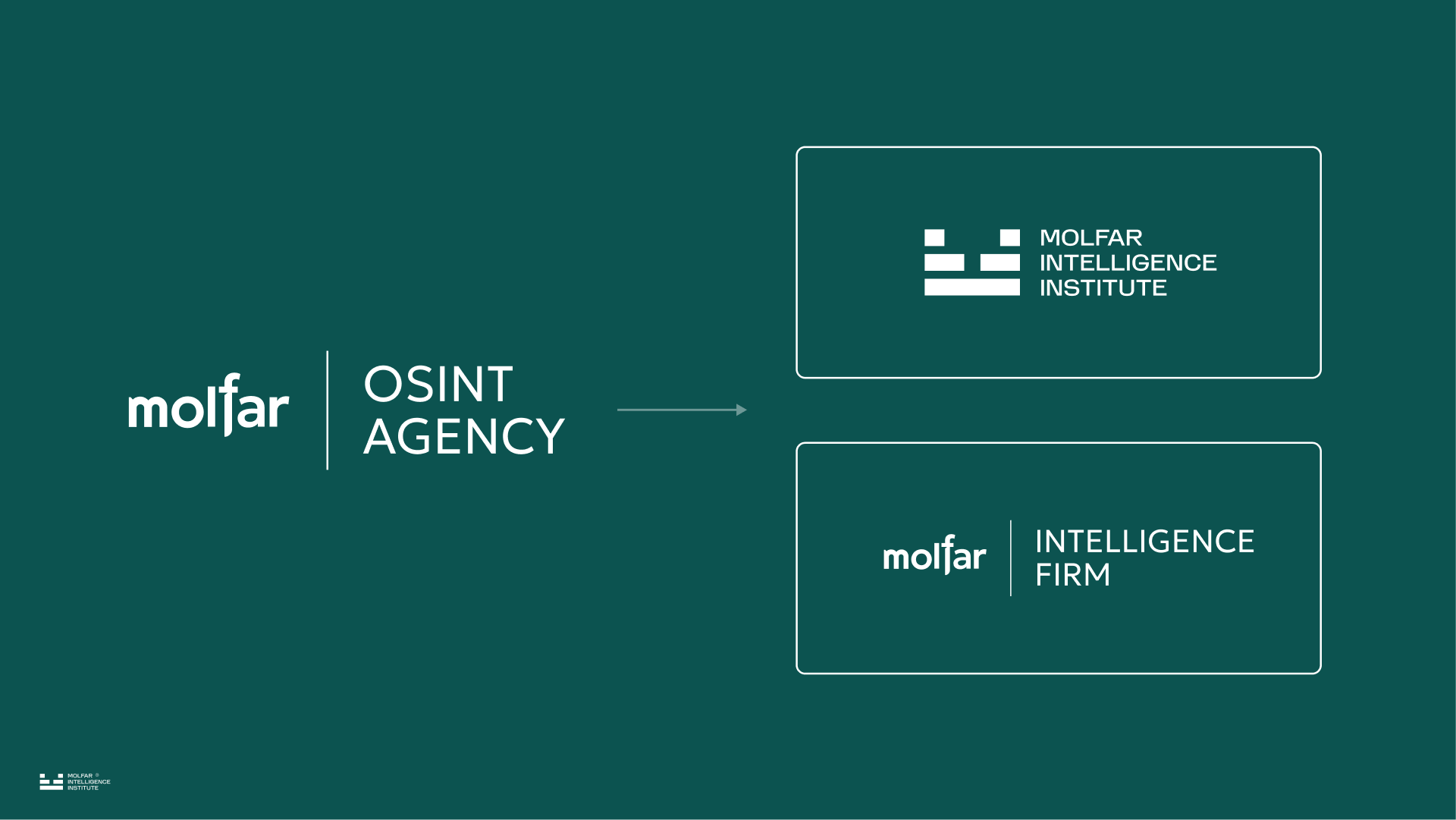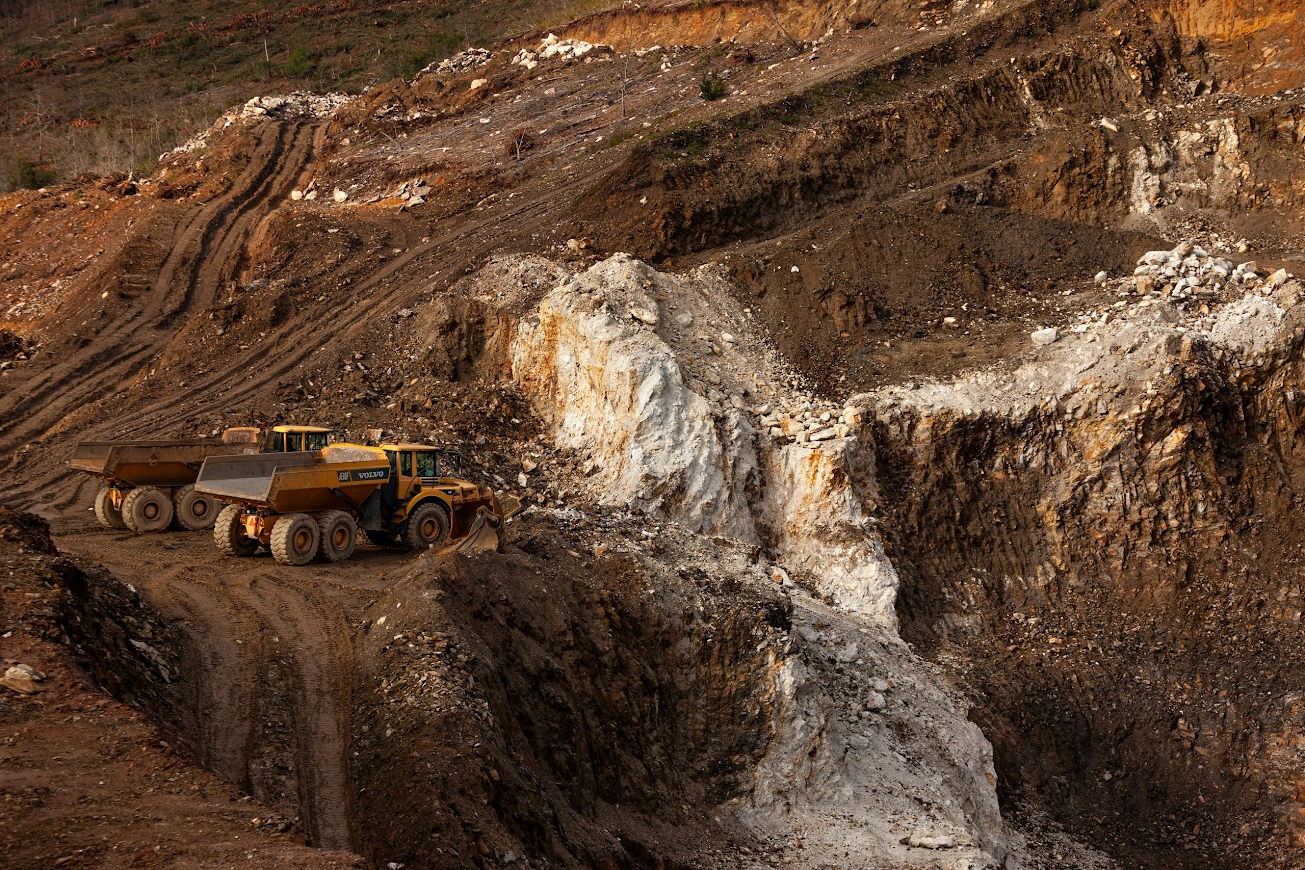Located near Moscow is one of Russia's most significant military factories — the Voskresenskyi plant. This is the facility where the occupiers produce the S-300, S-400, and S-500 missiles, which are used to bombard Zaporizhzhia, Kharkiv, Kostiantynivka, and Kramatorsk.
Analysts from the Molfar agency have determined which missiles are manufactured there, where this plant is located, and even how its workshops are arranged. All this can be found in the article.
What does the Voskresenskyi plant manufacture?
On the evening of October 21, two explosions were heard in the city of Kharkiv — a Russian missile hit a branch of the "Nova Poshta" service. Later, experts found fragments of a Russian S-300 missile at the explosion site. It was likely launched from the territory of the Belgorod region. The S-300, S-350, and S-400 — all these missiles were created for air defense systems. However, the Russians are also using them for strikes against civilian targets.
The Voskresenskyi plant specializes in producing missiles for various Russian anti-aircraft missile systems.
Russian-made S-300 missile system. It uses missiles from the Voskresensk plant.
The S-350 'Vityaz' complex is developed with consideration of modern and prospective threats in the airspace. Its main purpose is to provide protection against aerospace threats.
The S-400 'Triumf' is a modern Russian anti-aircraft missile system designed to neutralize all accessible air targets: from reconnaissance drones to ballistic missiles.
In the war against Ukraine, Russians have repeatedly used this system. In particular, it is claimed that it was a Russian S-400 that shot down the Ukrainian Su-27 aircraft piloted by Oleksandr Oksanchenko.
Furthermore, the Voskresenskyi plant likely assembles missiles for the Buk-M2 (1, 2), as photos and the plant's logo feature a variant of the Buk system, and the Russians have ordered models of Buk for their Museum of Air Defense Systems and SAMs: "Buk-M2, SAM 'Kub', S-400, and 'Bastion' (a modification of the SAM 'Kub') in 2018 (1, 2).
The location of Russian missile manufacturing
The plant is located on a closed, forested area covering 10k hectares. In addition to the VGKAZ, there are 3 test ranges (tank, aviation, general), a "Salute" engine manufacturing branch, and buildings buried under soil in case of explosions.
FSUE "GKNIPAS" is a scientific test site for aviation technology. It has licenses for its development and testing of helicopters, airplanes, UAV parts, aviation engines, operating stands, and on-board devices for recording flights. It conducts tests of new aircraft models. In 2018, the director, Oleg Pronin, sold aviation engines to Ukraine, for which he received criminal proceedings in Russia.
Isayev Design Bureau, Khimmash — an experimental design bureau specializing in developing aviation and space engines.
Part of the factory (operator's TK-2 (inv. No. 2270): Moscow Region, Faustovo village, Builders Street 4. Test site for VMZ "Salyut" and VGKAZ: industrial site in Faustovo village, in Beloozerskoye urban-type settlement.
Barracks: Voskresensk, Beloye Ozero, Shoseynaya Street, 29.
Some interesting locations at the plant
Here, we have compiled a list of some of the most extensive production facilities and warehouses that have significant importance for the enterprise.
Video surveillance at the Plant
In 2019, the Russians updated the video surveillance system for buildings No. 1 and 25:
Enterprise restructuring — connection with the "Almaz-Antey"
In October 2021, VGKAZ became part of the state-owned missile production company, primarily for air defense systems "Almaz-Antey." "Almaz-Antey" is a Russian state corporation, one of the largest in the world in terms of state military companies. Its primary focus is the development and production of missile systems, radar complexes, and other types of military equipment. "Almaz-Antey" plays a crucial role in Russia's military-industrial complex and supplies modern air defense to the Russian army.
In the context of aggression against Ukraine and other illegal military actions conducted by Russia, "Almaz-Antey" is at the center of the picture due to its role in the production and supply of weapons used against the civilian population and the infrastructure of neighboring states.
From 2014 to 2023, renovations in office and production buildings were carried out according to state contracts. And in 2023, a reorganization of the legal entity's ownership structure into a joint-stock company was conducted.
The EU, the UK, the USA, Canada, Switzerland, Australia, Japan, New Zealand, and Ukraine have sanctioned the Voskresenskyi plant.
In 2015, the enterprise conducted 7 export operations of missiles and components for the S-300 PMU-2 air defense systems to China and Costa Rica for 129 million dollars.
From 2020 to 2023, the factory planned to procure goods and services for 25 million dollars but conducted 194 purchases for a lesser amount — 10.87 million dollars. Thus, the procurement plan was completed at 42.26%.
Analyzing the dynamics of procurement after the Voskresenskyi plant joined the Almaz-Antey company, during 2021-2022, the amount of procurement decreased by 69.3% from the volume of 2020. This may indicate that purchases of goods are likely being made through the Almaz-Antey enterprise.
Deanonymization of management and staff information
Alexander Vyacheslavovich Sychugov — General Director of the Plant
Date of Birth: September 29, 1962
Tax Identification Number (TIN): 330501738533
Passport: 4621358246
Social Security Number (SSN): 180-278-105 59
Phone Numbers: +74955560747, +79162917134, +79661401840,
Email: [email protected]
Skype: [email protected]
As of 2017, Sychugov was the chief engineer at the Voskresenskyi plant, later became the acting CEO of VGKAZ and received an average monthly salary of $8,000. In 2020, he became the director of the enterprise.
Wife — Anna Tektova. Also works at the factory as the deputy director for legal affairs. Date of birth: 25.07.1978
Phone: +79162917134
Has a daughter from a previous marriage — Zlata (OK, VK, Inst, Inst2), and a son — Nikita Tektov (Inst). With Sychugov, they also have a son together.
In 2022, they visited Crimea, occupied by Russians.
The former director of VGKAZ, Pyotr Shavkuta, worked from May 2013 to September 2018, and before that, he worked at the FSB. He sued VGKAZ and the Ministry of Industry of the Russian Federation because he was not given a bonus to his salary. However, the enterprise exceeded the ministry's plan from 2013 to 2018. Presumably, in 2022, Shavkuta returned to work at the FSB.
Timokhina Lyubov Nikolaevna — Chief Accountant as of 2021
Born: November 11, 1954
OK, password: 9168124479Ln
Phone: +79168124479, +74955560747, +74964697384
Email: [email protected].
Taxpayer Identification Number (TIN): 500502742497
Chief Accountant as of 2021.
Eduard Ivanovich Beletsky (Russian: Эдуард Иванович Белецкий) — Deputy Director for General Affairs (as of 2021)
Born: June 19, 1967
Taxpayer Identification Number (TIN): 772126485209
Passport: 4697104965
Phone: +74965560747, +79116800807
Deputy Director for General Affairs (as of 2021). As of 2015, according to the data, the number of VGKAZ employees was 658, and the average age of employees was 50 years. The head of the trade union of the federal state unitary enterprise "VGKAZ" is Dmitry Borisovich Potapov (Dmitry Borisovich Potapov) — the VK community of the Trade Union of the FSUE "VGKAZ" has 105 members.
There is certain negativity associated with the employees of the plant. In particular, in 2019, Alexander Alexeyevich Shcherbakov, the head of the department of state secrets, was suspended.
Scandals associated with the Voskresenskyi plant
The Legal Process Regarding the Licensing of State Secrets at the Voskresenskyi plant
In 2019, Alexander Shcherbakov, head of the state secrets department at the plant, was temporarily suspended from his duties. The reason was that the production did not receive a license renewal to access state secrets. In response, Shcherbakov went to court, claiming that the license renewal was not part of his duties. In addition, he demanded reinstatement at work, moral compensation for $7.6k, reimbursement of legal costs amounting to $2.5k, and the payment of a bonus. This complaint led to the case being sent for a new review in the court of first instance.
The Scandalous Contract with "Marta and Co."
From 2010 to 2013, the former plant director, V.A. Kopyonkov, signed a contract with the construction company "Marta and Co." The goal was to build a residential building with 74 apartments for the plant's employees. For this, the plant transferred $5m to the company, a part of which was supposed to be returned in the form of finished apartments. However, it was later revealed that the owners of "Marta and Co." were close relatives of Kopyonkov, as well as the director of planned construction at the plant. This information led to the arrest of Kopyonkov, his deputy, the director of the legal department of the Voskresenskyi plant, and the financial director of "Marta and Co." Interestingly, in 2014, "Marta and Co." also signed a contract with the state sports center for a major repair, which cost $42k.
In conclusion, it is worth noting that the Voskresenskyi plant, located in the forests near Moscow, is one of the critical links in Russia's aggressive war against Ukraine. This plant is where S-300, S-400, and S-500 missiles are created, which are used to bombard Zaporizhzhia, Kharkiv, and Kramatorsk.
The Voskresenskyi Plant produces weapons of mass destruction and constantly modernizes them, making them even more deadly. The plant's entry into the state company "Almaz-Antey" and its subsequent reorganization underline the strategic importance of this site for the Russian military machine.




